Freedom’s Fight
Truthdig is pleased to present an excerpt from Gary Phillips' novel "Freedom’s Fight," which interweaves real historical figures and situations in a fictive narrative about World War II, focusing not just on the black soldier’s struggle, but also on the debates various civil rights groups had about the war stateside.The historical novel "Freedom's Fight" focuses on black soldiers in World War II and the debates about the war among civil rights groups stateside.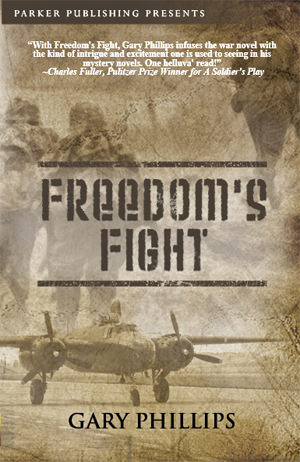
Author’s Introduction: Of War and Race
This Veterans Day reminds me when I was growing up in then-South Central L.A., I’d occasionally hear from my dad Dikes about his experiences in World War II. I knew he’d seen combat in an all-black squad at Guadalcanal and encountered racism both there and when he was in basic training in the Jim Crow Army at Fort Huachuca in southeast Arizona. My uncle, his older brother Norman, had seen mop-up action at D-Day and was among those black expatriates who’d remained in France after the war. Their younger brother, Sam, had been stationed in India, and my uncle on my mother’s side, Oscar Hutton Jr., I never knew. He was a Tuskegee airman and was killed in plane combat over Memmingen, Germany, in July of 1944. I have the Purple Heart awarded him posthumously.
But the experiences of the black soldier was missing from movies like “The Battle of the Bulge,” “The Longest Day” and “Patton,” a film with only a small part for one black actor, James Edwards (who had strong roles as a soldier in “Home of the Brave,” Sam Fuller’s “Steel Helmet” and “The Manchurian Candidate”), as the general’s valet. But where was the story about the 761st all-black tank battalion under Patton’s command? Where was the story of Patton writing of that outfit, “… I have no faith in the inherent fighting ability of the race.” (See “Brothers in Arms: The Epic Story of the 761st Tank Battalion, WWII’s Forgotten Heroes” by Kareem Abdul-Jabbar and Anthony Walton.) And what about the amazing story of Medal of Honor winner Sgt. Eddie Carter, half black and half East Indian, who fought bravely with the anti-fascist Abraham Lincoln Brigade, in the U.S. Army in WWII, and with Chiang Kai-shek’s army? (My source here is “Honoring Sergeant Carter: Redeeming a Black World War II Hero’s Legacy” by Allene Carter and Robert L. Allen.)
With big-budget movies like “Pearl Harbor” and “Saving Private Ryan,” as well as miniseries such as “Brothers in Arms” and the upcoming “Pacific,” the black GI still remains nigh invisible. Admittedly there have been efforts such as “Miracle at St. Anna,” from James McBride’s novel “A Solder’s Story,” from Charles Fuller’s Pulitzer Prize-winning “A Soldier’s Play”; and HBO’s “Tuskegee Airmen” cable movie (and going way back, there’s also the generally well-done ABC TV Movie of the Week from 1970, “Carter’s Army”). Yet the preponderance of the WWII stories still being told in film and prose are from the white viewpoint and usually lack black central characters.
My novel “Freedom’s Fight,” which interweaves real historical figures and situations in its fictive narrative, is not meant to be the catch-all answer to the dearth of black World War II stories. I hope it’s an entertaining read that also tells aspects often overlooked from that period. The book not only focuses on the black soldier’s struggle, but also on the debates various civil rights groups had about the war stateside. Why should we fight and die for freedom overseas when we don’t have it at home? Through the eyes of Alma Yates, a young black woman reporter for the black weekly newspaper The Pittsburgh Courier, the reader is given a take on the war not explored elsewhere.
May 1943 – Harlem
“Is not the Negro’s blood the same as the white man’s?” The stentorian voiced man asked rhetorically from his seat in the conference room. “Hasn’t Dr. Charles Drew already proven that it’s all the same with his plasma and transfusion breakthroughs?” The speaker, the barrel-chested, silver-maned Reverend Carter Jervis Hardune of the Second Ethological African Methodist Church on Amsterdam Avenue — and 38th Degree Prince Hall Freemason — underscored his point with the slap of his palm on the table.
“Don’t get too heated, Hardy, you better save something for Sunday.” Virgil Crimpshaw, a big man in a big suit said jocularly. “We got a long way to go before we lie down.”
Hardune lifted a graying eyebrow at his compatriot. “How well I know, Brother Crimpshaw, how well I know.”
Alma Yates moved her hand in front of her mouth to hide her smile. Was it small wonder the negro movement for betterment was in the state it was in? Not that the men, and save for her, all the other occupants of the room were male, didn’t mean well. Their past and current efforts were fine examples of their sincerity. It’s just too bad the very tenacity and courage that made them so valuable to the cause, also contributed to them having heads too big for their hats.
“All right gentleman, and lady,” Ferguson Mylo, cut in, nodding his head at Yates. “Let’s keep on track, if we can. This has been a productive meeting so far, and I believe we all agree the joint letter we’ll deliver to Mrs. Roosevelt will be the decisive blow to break to dismantle the racial barricade.
Crimpshaw laughed hollowly. “The light of your optimism touches us all, Fergie.”
The crisply attired Mylo cleared his throat and poured himself some water from one of the decanters on the long table. “I’m simply trying to present the whole picture, Virgil. It’s not as bleak as you always make it to be.” He sipped soundlessly, the product of proper upbringing at Mrs. Stamphill’s School of Etiquette and Manners still on 111th Street.
“Nor as cheery as you would have it,” Crimpshaw retorted. He pivoted to look at Yates. “And you can quote me, if you like, miss.”
“Don’t you get your name in the paper enough?” Jerome Lindsay of the Double V Committee sniped.
Crimpshaw’s fingers brushed at his pencil mustache. Just like the one he’d seen Billy Eckstein sporting in a story about the singer in Phylon magazine. “It’s not about me, it’s about advancing the interests of the Brotherhood.”
“Which of course is synonymous with the interests of A. Philip,” Reverend Hardune intoned. It was unclear whether he was being sarcastic, insightful or both.
Mylo went on. “What we have to do in this letter, is logically and irrefutably poke holes in the War Department’s arguments for not activating the colored soldier. Latrine duty and smoke detail has its place, but that is a place we can’t allow ourselves to occupy as our only contribution.”
“Tell that to that guts and glory cracker General Patton,” Lindsay chimed in. “He’s been quoted in the white and black press stating the negro does not have the intellectual capacity to handle the complicated machinery of a tank.”
“But some huskie from Iowa who’s only shoveled shit is over-qualified, huh?” Crimpshaw bellowed contemptuously.
“Your language.” The reverend inclined his head at Yates. “This is not a meeting of your sleeping car porters playing tonk in the back of the freight car.”
“My apologies, but I’m sure Miss Yates has heard a lot worse.” Crimpshaw touched a finger to his brow slick with lotion. “But these are not times for polite letters and petitions, gentlemen. This Administration may have brought in the New Deal, but we’re still getting the discards.”
For the first time since the meeting had been underway, Yates detected irritation behind the calm facade of Mylo. She resumed taking notes.
“No one respects Phil Randolph more than I do,” Mylo began. “And while there were many factors leading to the President signing into effect Executive Order 8802 last year, all of us around this table acknowledge that his threatening to pull off a March on Washington added the needed push to get the order signed.”
Crimpshaw leaned forward. “You didn’t ask me here as a representative of the Chief to laud our praises. We’ll take care of that,” he added testily. His blunt index finger tamped on the table for emphasis. “I’m here because like it or not, you in this room can’t ignore us, though some of you disapprove of our methods of agitation and confrontation. Well gentlemen,” and I exclude Miss Yates because she’s here in her capacity as a reporter, the fact remains the order was signed and it was directly because following a meeting Roosevelt had with Mr. Randolph, he understood he wasn’t dealing with go slow Walter White.”
Yates let her smile show this time. This was getting good.
“Nonetheless,” Lindsay interjected, seeking to stave off an escalation of the rhetoric. “The order is only that in name only. It is supposed to be about no discrimination in defense industries or government employment. Sure we got workers swelling the lines in Detroit, California and the like, but we still have mess boys and stewards overseas who only see action when a plate falls in the kitchen. Even though the Tuskegee 99th Pursuit Squadron was finally sent overseas this month.”
“And that’s why we need to press the point home,” Mylo said. “Mr. White does not fly off the handle as Mr. Randolph has a tendency to do, then scramble to back up his bluff.”
“The March on Washington was no bluff.” Crimpshaw speared his blunt finger through the air.
The reverend held up his hand as if signaling for a cab. The nails, Yates noted, were neatly clipped and buffed. “But we are agreed that we must do something, correct? As it stands now, too many in the federal government think we are content with this half measure.”
“Then the letter has to be matched with a demonstration,” Lindsay opined. “Not on the scale of what Phil proposed, but a homegrown effort, a mass effort.” He winked theatrically at Crimpshaw.
“We hold it here,” Lindsay beamed, tapping the table with the flat of his hand.
Mylo looked at the reverend who fluttered his eyebrows. “Are we talking about the fall?”
“I think the summer, August,” Lindsay said. “That way we build for when the Cabinet and Congress are back after vacations. Coupled with the letter, a demand really, we will put public pressure on the President to respond.” He smiled, the plan forming in his head. “And we must make sure to publish the letter in the New York Times and Washington Post. We can’t do it like always and just be happy with coverage in our papers. This is the time to put this square in the laps of the white establishment.”
“That doesn’t give us much time to pull it off.” Reverend Hardune massaged his chin between thumb and forefinger. “Though one supposes waiting longer will only cool our people’s ardor and attention.”
Yates finished transcribing Hardune’s quote in her notes and used another sheet to write the names Marcus Garvey, C.L.R. James and Ranon Colin Bowlden. Each name had a question mark by it.
Marcus Aurelius Garvey, born in St. Ann’s Bay in Jamaica, had been the proponent of a Back to Africa movement in the ’20s and ’30s. Garvey was at odds with others in the negro betterment vanguard and constantly under attack by the white authorities. He’d had been jailed several times and finally ignominiously deported. He died disillusioned two years ago in London. But steadfast followers of Garvey’s United Negro Improvement Association still carried the torch and had been vocal and persistent in denouncing any black life sacrificing itself for the paper democracy of America.
C.L.R. James and Bowlden were radical intellectuals. Neither had called for returning to Africa to solve the blacks in America problems. Bowlden’s disagreements with Garvey were quite sharp and he’d denounced Garvey as a tool of the imperialists in a famous debate they’d had at the Harlem YMCA. And both men argued that black leaders should stop clamoring for overseas duty and call for an invasion of Georgia if they were serious about fighting for freedom.
Yates was forced out of her reverie by something that Ferguson Mylo was saying.
“That might work,” he nodded spiritedly. “If we can get the congregations and social clubs behind the idea. We can get a turn out worth the expenditure of manpower and money.”
“And let’s not skip over the fact that Miss Yates’ predecessor at the newspaper, Ted Poston, is part of Roosevelt’s Black Cabinet.” Lindsay waved a hand in the young woman’s direction. “He will be a useful conduit to keep them appraised that we mean business.”
“What do you think, Miss Yates?” Reverend Hardune clasped his hands across his rounding belly.
“I’m sure Mr. Poston will do what he can to convey this body’s messages to the President.” Inwardly, she felt that only Poston and a few others, including Frank Horne, singer and actress Lena Horne’s uncle, judiciously used their access to the White House. From her observations, too many black folks were happy to mention they had coffee with the president, rather than press important matters.
And Poston had been kind to her when she’d come aboard the Pittsburgh Courier newspaper. The Courier had run Poston’s column and reportage on black life for many years, and he was considered a trailblazer for the younger generation. He was now head of the Negro News desk of the Office of War Information in Washington, and a member of the cadre of blacks who unofficially advised and beseeched FDR — his “Black Cabinet.”
Poston, and earlier Ida B. Wells, a newspaper publisher who was a champion of civil rights, were the kind of people Yates wanted to become. Their examples of using words as tools to advocate for fairness and equity had spoken to a women like her who wanted more than just being a housewife in a walkup underneath the elevated. The meeting continued and assignments were divvied up. It was agreed that providing their respective organizations signed on, the ad-hoc committee putting together the Harlem Patriot’s Rally would meet again in two weeks. The event was planned for the second Saturday in August. The heat and humidity would be a factor, but that also assured more people would be out on their stoops than cooped inside hot apartments. Sure there’d be some at the air-conditioned picture shows, but the build-up to the rally was bound to capture the imagination of thousands.
Yates caught up with Crimpshaw as he finished chatting with Lindsay. “What do you think Mr. Randolph and his board will say about this proposal?”
The union organizer flashed big teeth. “The Chief has a lot of sway, Miss Yates, but he’s a big believer in equality in his office as much as he thinks it ought to be practiced inside a Pullman car. Anyway, I can’t see a problem in us endorsing and helping build the rally.” He strode toward the door. “Can I buy you a cup of coffee? At least we don’t need to use our ration stamps for that.”
“Why not?” She smoothed her skirt and was glad she’d worn the only good pair of nylons. There was an inch run in the back of the left leg but the nail polish she’d applied blended in okay. She wasn’t on the make, but knew these type of men expected a professional colored woman to present herself correctly. Whites and blacks were so judgmental.
The two left the building housing the Double V Committee offices. They then crossed 135th as a streetcar glided past on greased rails. Sitting inside, Yates could see two men in sailor’s caps. She wondered which ship they were serving food on as stewards, having to do smiling and thanks yous all around — denied the chance to be real service men. A hot spike of depression.
Reaching the other side, Crimpshaw hailed a slightly built man walking by in a boxy checked coat and tan slacks.
“Hey, Chet,” Crimpshaw waved.
“Hey yourself you dusky Joe Hill.” The other man laughed and the two shook hands.
“Say, man, this good lookin’ gal is a writer too.” Crimpshaw briefly touched Yates on the upper arm. “Alma, you don’t mind if I call you that do you?”
“That’s fine, Mr. Crimpshaw.”
“Hell, I ain’t that used up, am I?”
Yates smiled. “I guess not, Virgil.”
The one he’d called Chet scratched a fingernail behind an ear.
“Anyway, This here is Chester Himes, a sho nuff book writer, Alma,” Crimpshaw said.
“Great pleasure to meet you,” Yates replied. “I can’t say I agree with everything you wrote in the Lonely Crusade, but that was a fine book.”
Himes let his eyes get wide. “Uh-oh, an educated woman, Virgil, you better be careful.”
Crimpshaw’s mustache twitched mischievously, and he said, “She’s a reporter for the Pittsburgh Courier. Alma’s being sent around the country to do articles about the colored war effort.”
“The only effort I’m expending is in lifting whisky sours,” Himes quipped.
Crimpshaw said, “Sure sorry to hear about what happened at Warner Brothers out there in California.”
“What happened?” Yates asked.
“Jack Warner don’t won’t no niggers writing his movies.” Himes said it off-handedly, but Yates could see the disappointment briefly cloud his face. “Well, I ain’t no fan of George Raft anyway.”
“Where you staying?” Crimpshaw asked.
“At the McFadden on St. Nick.” Himes patted a coat pocket as two big men in long topcoats and sweat mottled hats stalked along the street. One of them was on a par with Crimpshaw’s size, and his wide feet clad in brogans slapped the pavement with ferocity. His companion was even taller, and on top of his head rode a black slouch brim of undetermined age. He kept his head down and Yates caught a glimpse of scarring on one side of his brooding Masai features.
The stouter one touched the crown of his fedora as he neared the woman. The two traipsed on with purpose. Himes had dug out a Lucky Strike pack and shook a cigarette loose for his friend. The union man declined and Himes lit one without duplicating the gesture to Yates.
“Look like a couple of hog farmers in their Sunday-go-to-meetins,’” the book writer muttered. Himes watched the two ramblers stride down the street, Harlemites stepping around them as they passed.
“I’ll get you on the blower in a day or two and we’ll go over to Sylvia’s and swap lies about the old days, man.”
“Lies are all we have, Vigil.” Himes said, the cigarette tucked in the corner of his sardonic mouth. He also ambled away and the man and woman entered Byrd’s Grill and Domino Emporium.
The melodic shuffling of the domino tiles on wood rubbed shiny greeted their ears as they crossed the threshold. Set parallel to the twin picture windows on either side of the door overlooking the avenue were domino players engrossed in their games. Mostly they were older men, their backs stooped from decades of chopping cotton and hauling slabs of ice way before they journeyed north.A domino was slapped down, its companions on the table rattling from the impact. “Fit’een,” a man with a front tooth missing hollered.
“Don’t stop writing yet, sco’ keeper,” one of the other men holler. He whacked down a six-five tile and yelled, “Twenny, goddammit.” Upon noticing Yates he cackled, “I’m sorry, little lady, I didn’t see you standing there.”
“But I guess it’s okay to swear around me, with your dried up self.” The speaker was an ample-proportioned waitress in a spotted apron.
“Aw, damn, Myrna, you the one that taught me how to cuss,” the old timer roared, getting a chorus of chuckles from his peers.
Yates and Crimpshaw slid opposite one another in a booth. There was a discarded copy of the Communist Party’s Daily Worker newspaper on the seat next to her. The front page article and accompanying photo was of a wildcat strike at a Ford plant outside Los Angeles at a place called Pico Rivera.
Patting his stomach, Crimpshaw said, “Guess I better get a hamburger to help me get my coffee down. What about you?”
“Coffee is fine by me.”
“Yeah,” he admired, “I can see you pay attention to what you eat all right.”
She got her pad out of her purse. “You’re not trying to get a rise out of me, are you, Virgil?”
“No ma’am,” he managed with a straight face. “But you gotta understand, most of my time is wrapped up in visitn’ my members when they sleep over at some flea bag hotel trying to catch a few winks in between their runs. A bunch of jokers in long johns stinking of cheap whiskey and watching slop boiling over on the hot plate is about all I get in the way of entertainment.”
“Yes, I can imagine how hard it is for you.”
Crimpshaw shook his head woefully. “You just don’t know.” He looked up at her and they both laughed.
The waitress who’d cracked wise with the old man came over to take their orders. “Sorry,” she said, after the Sleeping Car organizer made his request, “but we’re out of beef till next Tuesday. Our soldier boys needs they iron. Ham and cheese okay?”
“Sure, anything for the effort,” Crimpshaw flashed a ‘V’ with his two fingers. “Victory at home and victory overseas. Yes sir.”
“You better be careful, Virg,” the waitress warned. “You already skatin’ on thin ice with them Hoover boys ‘cause of y’all incitin’ darkies to stand up for theyselves.” She marched away, whistling.
“How do you find the time to work?” Yates kidded.
He settled his solid frame in the leatherette booth. “I’m just a ball of energy, Alma.”
She asked him some questions she already knew the answers to about the Brotherhood of Sleeping Car Porters and he gave her ready-made answers. On the wall framed in Bakelite was a photo of Duke Ellington and Billy Strayhorn composing at the piano.
“Now what is it I can really do for you and that outstanding paper you work for now that we’ve danced around awhile?” Crimpshaw said.
“I wanted to talk with one of your porters, a man named Stanley Bascome. I know he’s here in town, but he’s been ducking me.
Crimpshaw’s brow bunched in consternation. “That’s why you agreed to sit with me. And just why is it you want to talk with brother Bascome?”
“The rumor.”
“Huh?”
She lowered her voice. “About a handful of black soldiers murdered and buried n the Arizona desert.”
He pushed on the inside of his mouth with his tongue. “I’ve had to deal with my share of nutty stories working for the union and knowing what the Pullman Company was capable and willing to do. And let me tell you, sister, old man Lincoln was willing to do a lot. But this tall tale, this is hogwash. And I’ve heard some crazy stuff.”
“That’s what I’m trying to find out. There’s been lynching of negro GIs near bases, shoot outs between black and white soldiers — this might not be so fantastic.”
Crimpshaw ran a rough hand over his broad face. “You know how that makes us look with that kind of talk, don’t you?”
The waitress returned with their orders and they remained silent until she departed.
“I don’t need to use his name, but I want to see if there’s anything to it.” Yates sipped her coffee. It was heavy with chicory to stretch the grounds. The boys overseas sure ate well, she reflected. At least the white boys did.
Crimpshaw leaned forward, “Look, not only do I not want my union in no way caught up in this foolishness, you of all people know this pushing and pulling we’re doing with FDR is like dancing with a drunk. We got to hold up more than our end and sure ain’t getting much in return. Still,” and he bit off some of his sandwich, “we’re making headway insofar as them inching toward the decision of letting colored boys into the fight. Not that I’m eager to have our blood splashed all over France and the Pacific.” He finished chewing and swallowed. “Especially since it gets spilled enough here at home.” Yates stirred her coffee.
“My uncle was one of the Black Rattlers, you know about them?”
“The 369th, sure. They fought the longest with the French on the front during World War I.”
“Yeah,” Crimpshaw talked around more of his food. “How you gonna keep ‘em down on the farm once they seen Paree,” the ofays sang once the negro troops got home – the ones left alive at least. Plenty of them got chewed up in that goddamn slaughter ground of the Argonne Woods and what not.”
“Including your uncle?” She held the cup half way to her mouth.
“He lost a leg and an eye,” Crimpshaw confirmed. “But he and his pals, damn near 200 of them, got their medals. The frogs awarded them the Croix de Guerre, the Cross of War. That sure got the white boys riled up with jealousy.”
“Yes,” she concurred, “I’ve read accounts of the rioting by white against returning black soldiers. Men who came back home and assumed that their sacrifice overseas would mean something better for them here. That they would respect us for doing our share.”
A silence extended between them. The raucous sound of the men playing dominoes came to them as if through a heavy fog. Then Crimpshaw spoke, “And that’s the reason you can’t be looking into this mess, Alma.”
“This may not be some old wife’s tale,” she said. “This is about a persistent rumor that the United States Army willingly participated in, and covered up a secret fatal experiment of 20 negro soldiers after a violent altercation at Fort Huachuca.” She frowned at her cooling coffee as if it were wheat paste suitable for gluing.
“And you want to be the one to break the big story? The first colored reporter to earn herself a whatdoyoucallit, Pullzer?”
“Pulitzer.”
“Yeah. Or maybe that nigger hatin’ Jew Jack Warner will make a movie out of it, and you can be played by Lena Horne or that gal I saw in that Herb Jeffries cowboy movie.”
“Are you scared I’ll embarrass the Brotherhood by talking with Mr. Bascome, or what white folks will say if some part of this is true?”
“The union will survive because we’ve come through hell to get what’s due us, Miss Yates. But we also understand when to confront and when to compromise when larger matters are at stake. And you stirring this up is bound to have negative repercussions among those we’re trying to motivate. The Tuskegee airmen are itchin’ to fight, Alma. We got fellas that have trained and re-trained for combat in all its forms. This dam is about to break.”
“Then Bascome won’t hold that back,” she countered. “Have you talked with him about his brother? The one I understand was supposedly one of the murdered men?”
Crimpshaw blew out a loud gust of air. “Not directly. But I heard he tied one on one night and was going on about it. But it’s not like Bascome’s got the straight dope, he wasn’t there you know. His mother got a letter from the War Department saying his brother died in the service of his country.”
“Had his brother shipped out?”
“Don’t know many more particulars than that.”
“Then all the more reason I should talk to him.”
“Other than that one time, I understand he ain’t exactly chatty on the subject.”
“I’m not out to hurt our cause,” Virgil,” she soothed. “But there’s been bad incidents at several bases, Fort Dix, Fort Bragg, and I hear Camp Van Dorn in Mississippi is a powder keg waiting for the match to be struck.” She gestured forcefully. “At Freeman Field in Indiana, 100 negro officers were arrested for trying to enter an officer’s club reserved for whites. They’d planned this to show just how hypocritical the Executive Order really is. That no matter what we do, Jim Crow is the order of the day no matter where we find ourselves. So I’m not saying I believe or don’t believe this story. But it’s persisted for months now on the negro grapevine. The fact that the Department of the Army hasn’t done more than say there’s nothing there, has left a very unsatisfied taste in a lot of mouths.”
Crimpshaw put up a hand as if trying to hold back gravity. “Good to see you get passionate about something.”
“I don’t consider myself a frivolous woman, Virgil. I know I got this assignment because a lot of able-bodied men at the paper have done their duty and volunteered for the Service. I started there as a secretary but quite frankly, I found it incredibly boring work. And I don’t want, at least right now, some big shouldered, swivel hipped man to come along and be my black knight,” her eyes sparkled when she said that.
“I see,” was his subdued reply.
“I’m no man-hater, Virgil,” she smiled and he could feel it all the way back to Arkansas. “I like to have fun too.”
“That mean you’d consider accompanying me to see Prez at the Five Spot Thursday night? I haven’t seen Lester Young wail on his sax since he and that singer, Gil Giabretto, played the Cotton Club a couple of years back.”
“If I get to talk with Mr. Bascome.”
“You drive a hard bargain, woman.”
“I have no choice.”
He sighed but he knew he was going to give in. He’d been in knockdowns with Pullman’s goons and kept swinging until his arms were too heavy to lift. But the turn of an ankle and a pretty girl’s smile got through his defenses every time. When would he learn. “Okay, but for chrissakes, don’t let this get back to the Chief.”
“It won’t, at least not from my end.” She finished her coffee, watching the man over the rim of her cup. He was a little too taken with himself, but there was a forcefulness to him she found appealing. As the steam warmed her face, she was glad her mother, Clara, wasn’t witnessing this. What would she say about her properly raised daughter flirting with a known red labor agitator. What indeed?
Click here to read more about “Freedom’s Fight” and “the story behind the story.” Or, check out Parker Publishing’s product page about the novel here.
Your support matters…Independent journalism is under threat and overshadowed by heavily funded mainstream media.
You can help level the playing field. Become a member.
Your tax-deductible contribution keeps us digging beneath the headlines to give you thought-provoking, investigative reporting and analysis that unearths what's really happening- without compromise.
Give today to support our courageous, independent journalists.


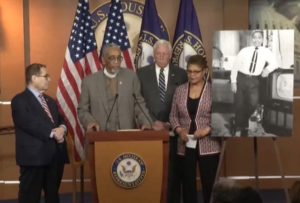

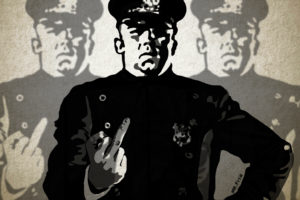
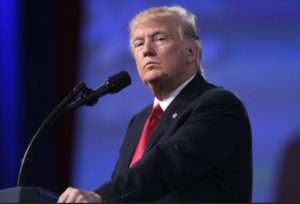
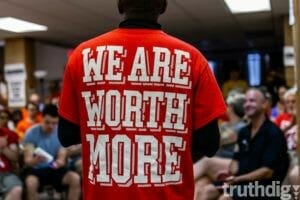
You need to be a supporter to comment.
There are currently no responses to this article.
Be the first to respond.